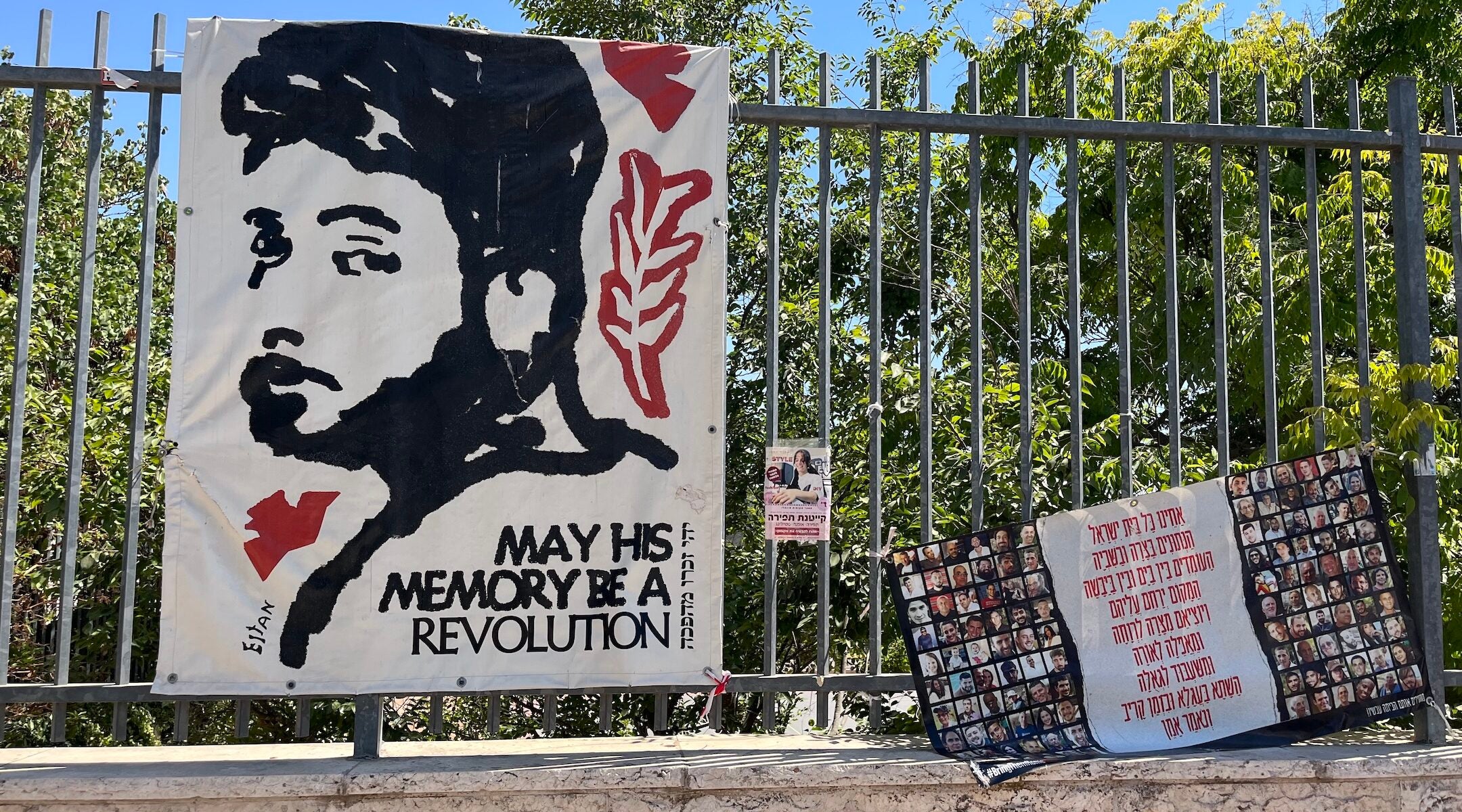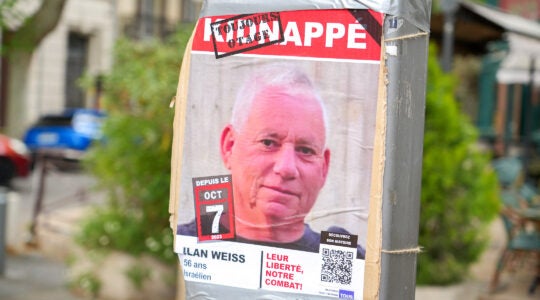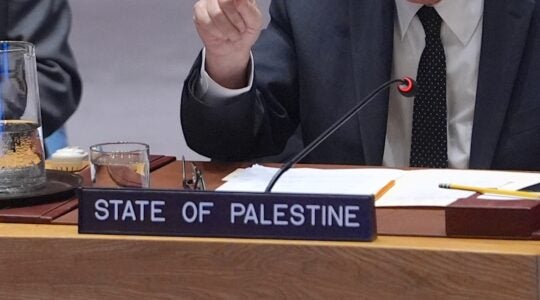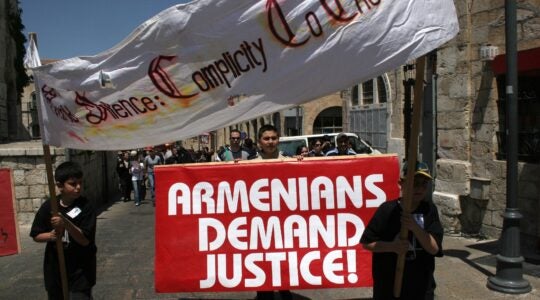JERUSALEM — Israeli Prime Minister Benjamin Netanyahu should not take credit for the return of hostages murdered while in Gaza, the father of one of the most prominent in the group said on Sunday.
Jon Polin, the father of murdered Israeli hostage Hersh Goldberg-Polin, called on Netanyahu’s office to stop claiming that “military and diplomatic pressure” had caused the release of 205 hostages, from a total of 255 held on Oct. 7, 2023.
“This insensitive claim whitewashes the lives of the 20% of the 205 who were taken into Gaza alive, survived a period of torture, and were then killed in captivity, including my son Hersh,” Polin wrote on Facebook, adding, “Please do not take credit for ‘achieving the release’ of Hersh. This is offensive to Hersh and to our family.”
Polin pointed out what has long been known: that a deal on the table shortly before Hamas murdered Goldberg-Polin and five other captives last year would have included his release. That deal fell apart after Israel’s top negotiator, at Netanyahu’s instruction, made new demands at a convening that was intended to finalize a truce.
Polin’s statement came amid mounting indications that Netanyahu might again be moving away from striking a ceasefire deal that would see the release of more hostages. Both U.S. and Israeli officials last week said they believed most issues had been resolved in negotiations. But they have since been tripped up amid indicators that Netanyahu is trying to placate his far-right allies who want assurances that the war will not come to a permanent end with Hamas in place.
That pattern was detailed in a major New York Times article published Friday that lays out a history of unachieved deals and makes the case that Netanyahu deliberately spiked some of them to retain power amid pressure from his far-right allies.
A speaker at the weekly demonstration to call for the hostages’ release in Jerusalem on Saturday night referred to the article, which Netanyahu contested in a lengthy public statement — the one that Polin was responding to with his own comments.
The weekly protests have shrunk as the number of hostages has fallen — there remain 50, of whom 20 are thought to remain alive — and other issues have ascended in prominence. But Israelis remain highly supportive overall of striking a deal that would release all of the hostages in exchange for ending the war.
In Polin’s Jerusalem neighborhood, where posters of Hersh still line the streets and children can regularly be seen wearing shirts featuring his image, a smaller protest took place Saturday night outside the home of Ron Dermer, Netanyahu’s minister of strategic affairs who has been playing a lead role in negotiations.
Three women wearing “Bring Them Home” T-shirts stood in the dark outside, exhorting him through a megaphone to make a deal. One read the list of deceased hostages, emphasizing Hersh’s name when she reached it, as a single man watched them. As they finished and began packing themselves into a hatchback stuffed with placards to head to the city’s main protest, the man approached.
He said he was a reservist who had served several stints in Gaza, including 100 days in Khan Younis. He said he shared the protesters’ goal of ending the war but said he believed that targeting Dermer and Netanyahu with protests strengthened Hamas and international criticism of Israel.
“Hamas is the enemy, we agree,” one of the women said to him. (Both she and he declined to share their names.) “But these are my allies. I can only speak to them.”
The next day, Israel’s Channel 12 reported that Netanyahu had assured two far-right ministers that if he reaches a ceasefire deal, he would resume the war at its end. And the Times of Israel reported that sources close to the talks now say they think Netanyahu is stalling to avoid reaching a deal until the Knesset begins its recess at the end of the month. The hostages have been in captivity for 647 days.
JTA has documented Jewish history in real-time for over a century. Keep our journalism strong by joining us in supporting independent, award-winning reporting.






